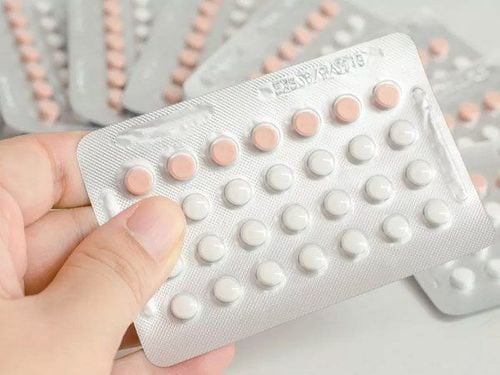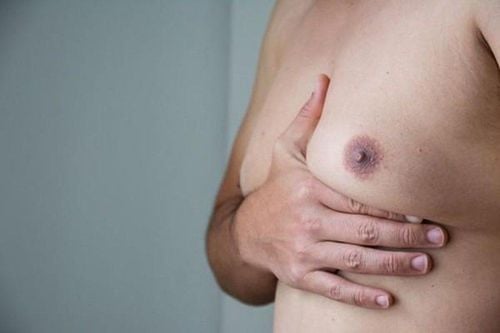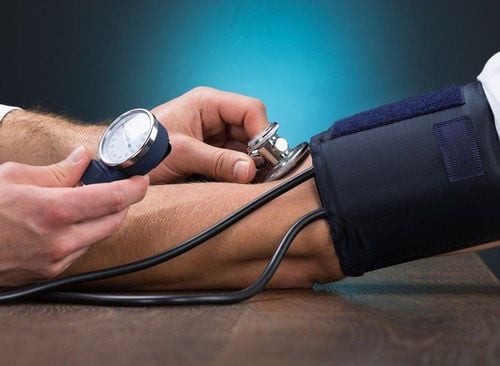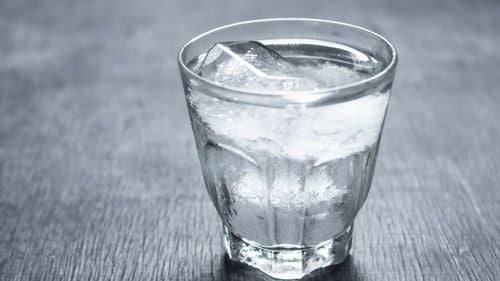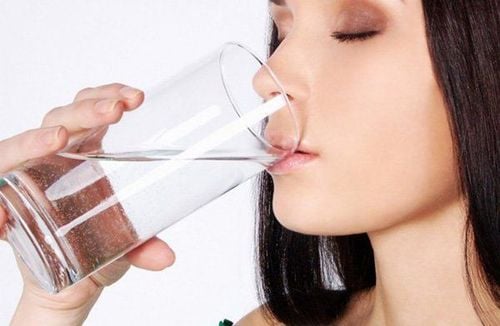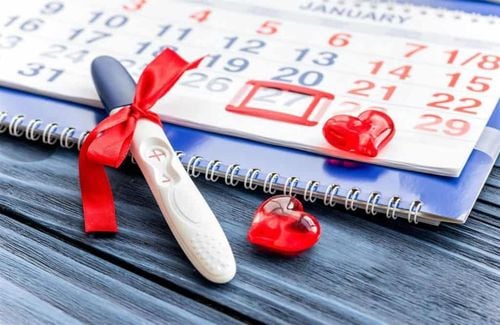This is an automatically translated article.
Salt and water retention is a condition in which the body accumulates fluids and ions such as Na+, Cl- in the body. This condition can have many causes and if it occurs and is closely related to your menstrual cycle then this could be due to the effect of increased sex hormones during the cycle. This article will provide some useful information on salt and water retention during the menstrual cycle.
1. What is water and salt retention in the body?
Salt and water retention in the body is the accumulation of fluid in the extracellular compartments of the body due to many causes. This condition manifests with symptoms such as weight gain; ankle swelling; swelling of the eyes, face; Abdominal distention due to fluid retention in the abdominal cavity.
Salt and water retention is best characterized by edema. Possible causes of this symptom can be listed as follows:
Low blood albumin levels: Under normal conditions, albumin levels play a role in ensuring oncotic pressure (retaining water in the blood vessels) in the vessels. blood. When the concentration of albumin decreases, it causes a decrease in oncotic pressure, causing water to be pushed out into the intercellular spaces and causing edema symptoms. Allergic reactions: Edema is caused by chemical reactions that cause vasodilation, allowing fluid to escape into the intercellular space. Blockage of blood vessels: Blockage of blood vessels causes increased pressure in the blood vessels also causes symptoms of edema. Heart failure: Decreased heart function is also a cause of fluid retention in the body. Body disease : There are many combined mechanisms, among which is caused by decreased blood filtering function of kidney water, causing fluid retention in the body. Pregnancy: Edema is multifactorial, including fetal compression, increased levels of steroid hormones that cause salt and water retention, and medical conditions such as pre-eclampsia or venous thrombosis. Premenstrual syndrome: Due to an increase in sex hormones during the menstrual cycle.
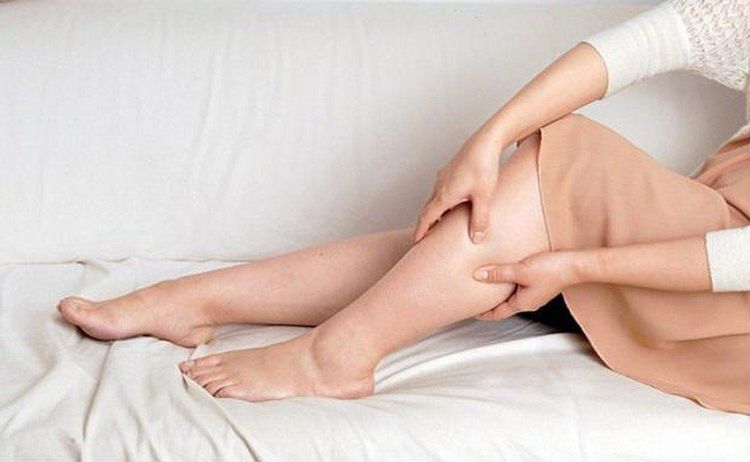
Tình trạng giữ muối và và nước biểu hiện đặc trưng nhất bởi triệu chứng phù.
2. Relationship between menstrual cycle and salt and water retention
Many women notice changes in water retention or “bloating” during their menstrual cycle. As early as 1934, Sweeney reported a form of "menstrual edema," premenstrual weight gain that peaked when it first appeared in a small group of student nurses. Several retrospective studies have reported water retention that peaks at the start of the menstrual cycle. But the underlying hormonal factors that cause these changes are still poorly understood. In particular, it is not clear whether ovulation is necessary, or whether similar changes occur during normal-length ovulatory cycles.
Studies have long reported the frequent occurrence of generalized edema associated with menstruation. The researchers noted an increase in body weight and bloating and swelling in the hands and feet in about one-third of the women. These symptoms occur near or before menstruation or right at the time of menstruation. In most cases, the weight drops quickly and returns to normal after menstruation.
Heilig, Peterson, and Milles described evidence of disturbances in water metabolism at the time of menstruation. Heilig observed that water excretion slowed down at the time of menstruation compared with the mid-menstrual period. Peterson and Milles, using the 'blistering technique' documented changes in the permeability of the skin capillaries of normal women during menstruation. Preliminary experiments indicate that, in normal dogs, subcutaneous injections of estrogen and progesterone produce an excess of sodium, chloride, and water retention in the body. It appears that the cyclical sodium, chloride, and water retention observed before menstruation in both normal and premenstrual patients may be related to cyclical changes in sex hormone secretion.
During a normal ovulatory menstrual cycle, estradiol has two peaks, a higher mid-cycle peak before ovulation and a luteal peak after ovulation.
In contrast, progesterone is low during the entire follicular phase but rises after ovulation and remains high during the luteal phase. Levels of estradiol and progesterone are both low during the first few days of the menstrual cycle. During the ovulatory cycle, estradiol levels can be variable or elevated with androgen excess (also called polycystic ovary syndrome) or variable but normal.
Scientists have noted that, in normal women, the highest concentration of estrogen in the urine falls around 12 days before menstruation (at or around ovulation). The increase in estrogen secretion in the luteal phase (second half of the menstrual cycle, after ovulation) occurs during the premenstrual period. In previous studies little attention was paid to the changes in body weight that can occur during menstruation. Estrogen and progesterone are two important hormones during the luteal phase (second half) of the menstrual cycle. These hormones belong to the steroid group, so they have the effects of the mineralocorticoid group (aldosterone) which increases the reabsorption of Na ions and the renal tubular secretion of K and Cl. This leads to increased water reabsorption (mediated by brain hormone ADH) causing an increase in extracellular fluid volume.
In a nutshell, water retention during perimenopause can be caused by fluctuations in your hormones. Your diet may also play a role.
Most menstruating women experience symptoms such as bloating one to two days before the start of their period. Others frequently experience symptoms in the five days before their period, affecting some of their normal activities. This is called premenstrual syndrome (PMS).
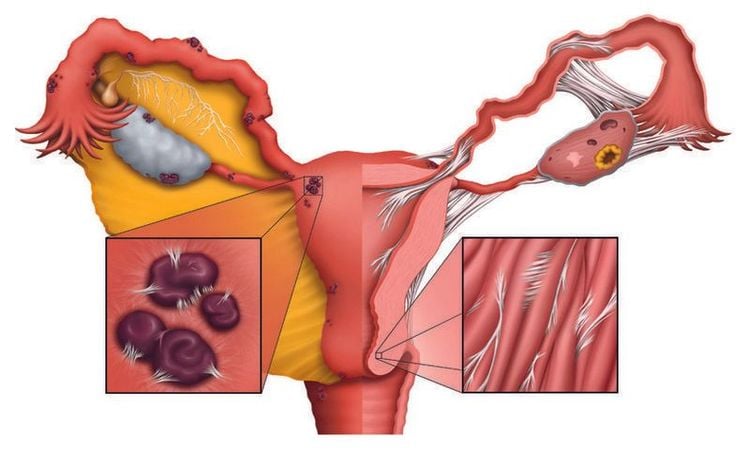
Việc giữ nước trong thời kỳ tiền kinh nguyệt có thể là do sự dao động trong nội tiết tố của bạn.
3. Some ways to reduce salt and water retention in the body.
To reduce water retention during premenstrual period, consider some ways such as:
Exercise regularly. Regular aerobic exercise can reduce menstrual symptoms. Get 30 minutes of exercise every day. Skip caffeine and sugar. Foods and drinks with caffeine and sugar can worsen bloating. Avoid these foods two weeks before your period. Avoid foods that provide a lot of gas in the stomach. Stay away from these foods throughout the month, not just when you have symptoms. Limit salt in your diet. Eating a lot of salty foods can make water retention worse. Magnesium. Magnesium supplements can help reduce water retention. Talk to your doctor before taking supplements. Water pills (diuretics). These medications are available by prescription to help reduce fluid buildup. Note that taking nonsteroidal anti-inflammatory drugs (NSAIDs), such as ibuprofen (Advil, Motrin IB, others) or naproxen sodium (Aleve, others) and diuretics at the same time can cause kidney damage . Some evidence also suggests that relaxation techniques and regular aerobic exercise, such as breathing exercises, meditation, yoga, and massage, can reduce PMS symptoms.

Tập thể dục nhịp điệu thường xuyên có thể làm giảm các triệu chứng trong kỳ kinh nguyệt.
4. When should you seek other help?
If you continue to have trouble with monthly water retention, consult your doctor. They may ask you to keep a diary of your symptoms for several months. This can help confirm that your symptoms are related to your menstrual cycle and not to other causes. Your doctor can also help determine the best treatment for you.
Abnormalities of the body in the menstrual cycle are one of the common gynecological problems of women. In order to help customers detect and treat gynecological diseases early, Vinmec International Hospital has a basic gynecological examination and screening package, helping customers detect early infectious diseases and help treat easy, inexpensive. Screening detects gynecological cancer (cervical cancer) early even when there are no symptoms.
Basic gynecological examination and screening package for female customers, has no age limit and may have the following symptoms:
Abnormal vaginal bleeding
Having problems with Menstrual cycle: irregular menstrual cycle, irregular menstrual cycle
Abnormal vaginal discharge (smell, different color)
Vaginal pain, itching
● Female client has several risk factors such as poor personal hygiene, unsafe sex, abortion,...
● Female customers have other symptoms such as: Abnormal vaginal discharge, itching, pain in the intimate area, negative bleeding unusual religion.
Please dial HOTLINE for more information or register for an appointment HERE. Download MyVinmec app to make appointments faster and to manage your bookings easily.
References: mayoclinic.org, medicalnewstoday.com




